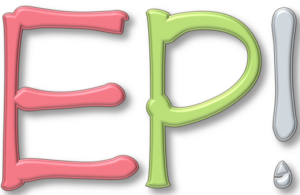Christmas is not even two weeks away and I have some wonderful book recommendations for those last-minute presents: two novels and my favourite non-fiction eye-opener of 2021:
So let’s start with “4000 Weeks: Time Management for Mortals” by Oliver Burkeman. This is one for all those plan-makers and lovers of to-do lists who are always looking for THE method to become more efficient, achieve a state of constant calm and finally start living their best lives. Burkeman makes the convincing case that this is neither possible, nor is it worth striving for.
Reading the back of this book, the topic immediately spoke to me – for as long as I can remember, I’ve tried to become a master of my time. From my school days all the way to the present, I’ve ALWAYS made plans, trying to optimise personal productivity. I had phases when my daily plans had 15- to 30-minute slots, when I assigned all activities to these little units and thought that I’d finally sussed it! I’d make weekly, monthly and annual plans as well and points not yet ticked off would be carried over. I can so relate to the author, a self-professed “productivity geek”, getting great pleasure from crossing things off to-do lists, from trying different efficiency-enhancing methods and believing that with the right processes and more self-discipline, one can manage to achieve control, be truly content and have more time for the truly important things. Well, there’s just not enough time. Ever.
In a greatly entertaining and eye-opening manner, citing philosophers from all ages along the way, Burkeman centres on the truth that first, a human lifespan is ridiculously short and we’ll never be able to accomplish everything we’d like and that second, this can be a very liberating realisation. “Missing out” is inevitable and that’s okay! We all miss out on a myriad of things, activities, travels, possible hobbies, pastimes etc. because by deciding FOR something, we’re at the same time deciding AGAINST everything else. It’s an illusion to believe that with the right approach, we’ll be able to fit it all in.
The pre-Christmas period is the perfect opportunity to give this new perspective a trial run, purge those overloaded to-do lists and concentrate on the important stuff: Not to postpone the joy to a later point in time when everything will finally be perfect – decorations, food, glamorous festive outfits and the latest up-do – but to actually enjoy the imperfect present moment and all those little pleasures along the way.
An absolute pleasure to read are these two novels:
“The Pull of the Stars” by Emma Donoghue. The Irish-Canadian author is best known for her 2010 novel “Room”, which was shortlisted for the Booker Prize and turned into an Oscar-winning movie. “The Pull of the Stars” is set in Dublin in 1918. Tender and full of empathy, the story takes place almost entirely in the maternity/fever ward of an understaffed city centre hospital in the middle of the Spanish influenza epidemic.
We follow nurse Julia Power over the course of three days as she, together with Bridie, a young volunteer, and Dr. Kathleen Lynn, an actual historical figure (politician, activist and founder of a children’s hospital in Dublin), tends to expectant mothers showing signs of the flu. The constant strain and the unfailing will to do everything possible to support patients and alleviate their pain make this a powerful and gripping read. You’ll be drawn into this little maternity ward and feel as if you’re breathlessly watching a historic hospital drama with constant scares and crises. Yet, all in all, Emma Donoghue manages to tell an uplifting story of compassion and human resilience. And don’t let yourself be put off by the fact that this is a novel in which a virus plays a major role. Our own dire situation won’t feel all that dire after reading “The Pull of the Stars”.
For “Hamnet” by Maggie O’Farrell, we’ll travel quite a bit further back in time – to the end of the 16th century in Stratford, England, during the last years of the reign of Elizabeth I. We know from the outset that the world’s most famous playwright (never named in the novel) and his wife will lose their beloved only son to the bubonic plague. The story switches between two timelines – the one starts on the day Hamnet’s twin sister Judith is infected while the other goes back 15 years – to the beginning of their parents’ relationship.
O’Farrell centres on Shakespeare’s wife, Anne (here: Agnes) Hathaway – she’s the driving force behind the love match as well as setting the course for her husband’s career. The minute details – from the description of the births of the children to the ten-page depiction of how the plague reached Stratford to Agnes’ fight for her son’s life while her husband is away in London, this is an astoundingly brilliant and intimate portrait of a woman, written in the most skilfully adorned language. Descriptions of daily life with its sounds, smells and tastes transport the reader to Stratford and the glover’s workshop, the cookhouse and Agnes’ garden. This is a stunning story as well as a tragedy, a story of loss and grief. And it’s definitely one of the most beautiful books I’ve read all year.


